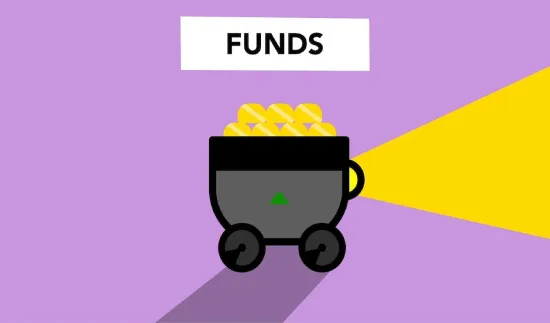A mortgage contingency or financing contingency saves a buyer from losing their deposit money if they are unable to get a mortgage within the time stated in the purchase contract, through no fault of their own. The mortgage contingency clause is an important part of NYC real estate purchase contracts, and it lists all the terms and conditions for when the contingency is valid (and the buyer can get their deposit money back if they don’t get a mortgage) and when it’s not (the seller keeps the money).
For co-ops and condos, the usual deposit amount that the buyer places in an escrow (where neither buyer nor seller can touch it until certain conditions are met) during a real estate deal is 10% of the purchase price. This deposit is also called earnest money, and it’s part of the full down payment the buyer gives to the seller upon closing.
For most real estate deals in NYC, the deposit can be a very large sum. If you are buying a $1 million condo, the 10% deposit would be $100,000, and if you can’t get a mortgage from a lender to finance the deal and there is no mortgage contingency in your contract, you may not be able to get this money back. This will be a major financial loss and might keep you from purchasing any other property as well.
Sellers usually don’t like mortgage contingency as it can cause complications and delays in the process. If they get into a contract with a potential buyer and the buyer is unable to secure the mortgage loan within the time provided (usually 30-45 days), the mortgage contingency allows them to walk out of the deal.
The seller, on the other hand, would have to repeat the process with another buyer, causing delays in which the market might become unfavorable, i.e., property prices drop.
If you are a buyer, a mortgage contingency gives you time to secure a mortgage. In most cases, that means getting a mortgage commitment letter from the lender, which is a legally binding document. The letter is issued after the lender has all the financial information they need from you, the property you are buying meets their lending criteria and the appraised value of the property.
The mortgage commitment letter contains several important pieces of information. It tells you how much loan the lender is willing to offer you, the interest rate, and the date the letter is good for. If you don’t close within the time written in the commitment letter, you might have to ask your lender for an extension or another commitment letter. A lender might add a lot of conditions (like a property appraisal) to the commitment letter, and if they meet those conditions, they will fund the mortgage.
It also includes conditions when they will not fund the property. For example, if your financial status changes before the loan is funded (like you lose your job and can’t repay the mortgage) or if the property is damaged, the lender might not fund the loan.
The contingency protects you only if you’ve made a good faith effort to secure the loan, like filling the mortgage application accurately, proving all the financial information the lender asked for and met all the deadlines. If you did everything right and you still didn’t get the mortgage (through no fault of yours), the contingency will protect your deposit.
But the clause also outlines the conditions in which you might not get your deposit back. They may include delays (on your part) to submit the right documents to the lender, giving out false information about your finances or down payment amount, etc.
It’s also important to note that issuing a mortgage commitment letter and funding the mortgage are two different things. If you fail to secure a mortgage because you didn’t fulfill the conditions associated with the mortgage commitment letter, they might not fund the mortgage. And the mortgage contingency won’t protect you in this case.
Yes, but it’s risky for you as a buyer. You might still have to do it in a seller’s market where you might be competing against other buyers for the same property, and some of them might make an all-cash offer (meaning no financing problems and delays for the seller).
In such a market, you might need to waive this contingency to be considered by the seller but make sure you discuss it (in detail) with your attorney and agent. You will also need to remain in close contact with your lender, so there is almost no chance of getting rejected for the mortgage.
In a real estate purchase contract, an appraisal contingency allows the buyer to cancel the contract without giving up their deposit if the appraisal falls lower than the purchase price listed in the contract. The bank issues a loan based on the appraised value of the property, and if it’s significantly lower than the price written in the contract, the buyer will not get all the money they need to buy the property.
Let’s say you, as a buyer, have executed a real estate purchase contract for a property worth $1,000,000 (purchase price listed in the contract). Since the mortgage lender offers a loan against the value of the property, they need assurance that it’s worth the price you are paying for it, so they ask you to get an appraisal.
Here, understanding the concept of Loan-To-Value (LTV) is also important. If your lender agrees to finance 80% of the purchase and you will cover the remaining 20%, the LTV is 80%. It means that the lender will give you a mortgage loan that covers 80% of the purchase price. And the dollar amount the lender offers will depend upon the appraised value of the property.
If the third-party appraisers determine the property is valued at or around $1 million, there won’t be an issue: The lender will provide $800,000, and you will provide the remaining $200,000 to cover the full price of the property. But if the appraised value comes up short, i.e., appraisers determine that it’s worth $900,000, you will be in trouble.
If a property is appraised for less than the price written in the contract, the appraisal contingency allows you to exit the contract without giving up your deposit money. However, you can still buy the property if you can come up with the difference.
Appraisal contingency also prevents you from buying an overpriced property and rapid price changes. If the property prices fall (by a lot) between the time your attorney wrote the contract and the time you got the property appraised, the contingency will give you a way out. In that case, you can negotiate a fairer price with the seller.
If you can’t get the seller to lower the price of the property, you can seek other financing options to bring the gap between the loan you are getting and the property price, like a second/junior mortgage or a personal loan.
That depends on the market and the competition for the property. If it’s a seller’s market and several buyers (including the ones making an all-cash offer) are competing for the same property, you might need to waive your appraisal contingency (among others) to make your offer more attractive. This will help you stand out against the competition.
But if it’s a buyer’s market and your offer and contract, even with the appraisal contingency in place, are attractive enough to keep the seller from seeking other buyers, keep the appraisal contingency clause in the contract.
Inspection contingency in an NYC real estate purchase contract allows a buyer to exit the contract if property inspection reveals major issues and the seller and buyer cannot come to an arrangement about repairs or a lower price. This contingency might have some specific conditions built into it, like a specific time period to get the inspection done or specific problems that would mean that the property has failed the inspection (foundation issues, mold, etc.).
The inspection contingency is not common in NYC real estate contracts, and there are two reasons for that. The first reason is that most buyers get the property inspected before the real estate contract is drawn up and signed by both parties. It gives buyers more information and more leverage to negotiate.
The buyer will ask the seller to take care of the property repairs before handing the property over (it can be written into the contract). Or, they can ask the seller to lower the property price appropriately.
The other reason why this contingency is not quite common in NYC is that most of the inventory is made up of condos and co-ops. And in these properties, the big-ticket items like the walls and roof are the responsibility of building management. So the buyer might feel confident going through the deal without adding an inspection contingency to the contract.
If you are in a hurry to close the property and want a binding contract in place (maybe because of a bidding war), you might skip the inspection before the contract is signed. If you execute the contract before getting an inspection, adding an inspection contingency clause might be important.
It will prevent you from any costly surprises when you move in. And it also gives you more negotiation power. Even if you can’t get the seller to lower the price after the unsatisfactory results of the inspection, you will have options with the contingency in place. You can walk out of the deal (with your deposit), or you can ask for a seller credit for repairs.
A seller credit is basically the seller taking the financial responsibility of getting the repairs done, and it can come in a few different forms. The seller might agree to pay off some of your repair costs (called seller assist) or reduce the property price by a specific amount (enough to cover the repairs). As a buyer, you can also ask for a repair escrow, which gives you more options and control.
A home sale contingency gives you time to sell your current home (if you want to use the funds to buy the new property) and the flexibility to exit your purchase contract (without leaving your deposit) if you are unable to sell your current home within the agreed-upon time period. It’s also called a Hubbard contingency.
When you are going through the process of selling your current home and buying a new one simultaneously, you want the sale of your home to be complete before you can proceed with the home purchase because you will need the money from the sale to fund your purchase.
In this situation, the home sale contingency gives you time and financial security. The home sale contingency clause in the purchase contract gives you the option to move away from the deal without losing your deposit if you can’t sell your current home on time.
Unlike other contingencies that are common in most real estate contracts and a standard practice, home sale contingency is only necessary for a limited number of buyers.
Sellers don’t like home sale contingency because it gives buyers an easy way out and has a strong chance to delay the sale of the property. That’s because most sellers might prefer giving more time to the buyer they have already signed the contract with instead of going through the whole process again with a new buyer.
But if you waive this contingency and your current home is still in the market, you’ll either have to look for a different way to fund your purchase or leave your deposit with the seller.
When you are buying a co-op, a board approval contingency allows you to walk out of the real estate deal if the board doesn’t give consent to the buyer or impose any conditions on the purchase. This clause is usually built into the co-op buying contract.
Even though condominiums have a board as well, this contingency is usually not part of the condo-buying contracts because condo boards technically don’t have the power to stop the sale of a unit. They do, however, have the right of first refusal, which allows them to “reject a buyer” by buying the condo unit themselves at the price that the seller and buyer agreed upon. They usually waive that right and issue a waiver to the seller.
A board approval contingency clause gives the buyer the chance to break free from the contract and get their deposit back in two conditions:
If these conditions are imposed, the buyer has the option to walk away from the deal (thanks to the board approval contingency), but they can choose to waive their right to walk away and meet these conditions to buy the co-op. The clause might also have a timeline, i.e., if the board doesn’t give a clear approval or a rejection within a specific time period, the buyer can exit the contract.
However, if the buyer doesn’t deal in good faith, has withheld information, or hasn’t provided the right information to the board, the board approval contingency might not protect them.
Title contingency allows you to get out of a real estate agreement (without any penalty) if you find out the property has a contested title after you sign the contract. A contested title is when people (or businesses) other than the seller have a claim on the property, or it’s connected with the legal or financial issues (usually liens) that have not been resolved or paid.
It’s also called clear title contingency, and it’s not very common in NYC. The reason is that the legal language that’s used in the real estate purchase contract already binds the seller to provide a clear title to the buyer. Also, because you will not be able to close a condo without buying title insurance, which might make the title contingency unnecessary.
If you become aware of these title-related issues before closing, a title contingency will allow you to walk out of the deal with your deposit intact.
















